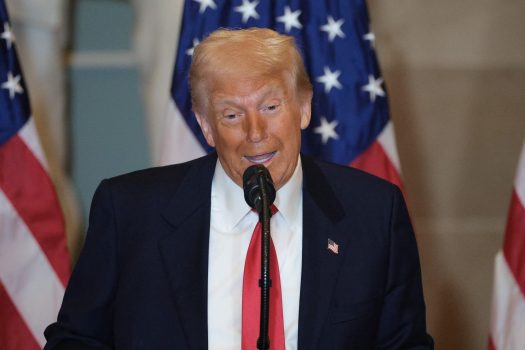
President Donald Trump has signed a lot of orders since taking office, but last month he signed a dangerous memorandum that hasn’t gotten significant attention despite its potential to repeal a broad range of basic protections.
Titled “Presidential Action Directing the Repeal of Unlawful Regulation,” the memorandum orders agencies to rescind regulations without any public input, ignoring law that requires public consultation. As an excuse for requiring this unprecedented action, the memorandum points to ten Supreme Court decisions from the last decade. Two of these cases directly involve religious freedom principles.
The White House offered a two-sentence interpretation of each case in an accompanying “fact sheet.” Needless to say, the interpretations aren’t nuanced or even accurate, opening the door for the repeal of regulations that touch on basic aspects of daily life – from access to health care to non-discrimination protections at work.
As the White House undoubtedly intends, this directive could lead to more taxpayer funding of religious education; greater discrimination against LGBTQ+ people, people with disabilities, and people from minority communities; and broader religious exemptions from foundational social programs meant to serve people most in need.
Yesterday, Americans United sent letters to 18 federal agencies setting out correct explanations of the two religious freedom cases. Given our decades of work on issues of religious freedom and church-state separation, we wanted to ensure that decisionmakers have the complete and legally accurate picture of the cases as they undertake the review process. We remind them that rescinding regulations based on a fact sheet’s flawed, two-sentence explanations may lead to troubling outcomes, endanger important regulations, and invite litigation.
The first religious freedom case cited in the memorandum is Carson v. Makin from 2022. Carson says that Maine must allow taxpayers to use public funds to attend religious private schools to the same extent it allows people to use these funds for secular private schools.
Relying on Carson, the White House directs agencies to “review their regulations to ensure equal treatment of religious institutions vis-à-vis secular institutions for purposes of funding and access to public benefits.”
Unsurprisingly, this description overstates the case in a way that serves the White House and its Christian Nationalist allies. The Supreme Court’s decision in Carson is limited to indirect-aid programs – programs where individuals receive government funds and then choose where to spend these funds based on their own genuine and independent choice between various private providers. Carson does not permit, much less require, the government to directly fund religion, but you wouldn’t know that from the White House’s limited interpretation.
Religious freedom means that we get to decide on our own whether – and, how – to fund religion. The government should never force us to pay for the religious education of others. If agencies are going to look to Carson when reviewing their regulations, Americans United will make sure they know exactly what Carson does and does not say.
The second cited case is Roman Catholic Diocese of Brooklyn v. Cuomo from 2020. This case involved an emergency injunction – necessarily narrow and fact-specific – on New York’s limits on in-person worship at churches and synagogues amidst the COVID-19 pandemic.
The fact sheet claims that Diocese of Brooklyn requires sweeping review of regulations “to ensure at least equal treatment of religious institutions vis-à-vis secular institutions for regulatory purposes.” Once again, the Trump administration’s broad interpretation is not required by Diocese of Brooklyn. In fact, the case simply applies the long-standing constitutional principle that laws that restrict religious exercise must either be neutral and generally applicable or satisfy a strict scrutiny test. Moreover, few (if any) regulations restrict access to in-person worship in the same way as the law at issue in Diocese of Brooklyn.
While the government may not single out and unfairly burden religion, religious freedom does not authorize religious exemptions that harm others. Americans United made sure that the leaders of these agencies were reminded of that.
Ultimately, the presidential memorandum represents an attempt by the administration to implement its sweeping, Christian Nationalist agenda to get rid of regulations that keep religious freedom safe – and evade legal safeguards designed to prevent just this outcome. The willful misinterpretation of Supreme Court precedent threatens to weaken basic protections and harm us all. Americans United’s letters remind the federal government that we’re watching and won’t stay silent as they attempt to undermine religious freedom in our nation.